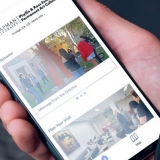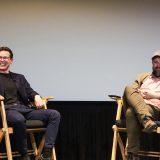Foundations of a Science-based Discussion of Free Will, Nov. 10
November 8, 2010
On Wednesday, Nov. 10, 2010, theoretical physicist Henry Stapp from the University of California’s Lawrence Berkeley Laboratory will be giving a lecture titled, “Foundations of a Science-based Discussion of Free Will” in Argyros Forum, room 208 at 4 p.m.
Dr. Stapp specializes in the conceptual and mathematical foundations of quantum theory, and in particular on the quantum aspects of the relationship between our streams of conscious experience and the physical processes occurring in our brains. He is the author of two books on this subject: “Mind, Matter, and Quantum Mechanics” and “Mindful Universe: Quantum Mechanics and the Participating Observer”.
The basic scientific theory that prevailed from the time of Isaac Newton until the beginning of the twentieth century is called “Classical Mechanics”. Its core precept is that the evolution of the physically described aspects of nature is fully determined by these physically described aspects themselves, acting alone with no reference to any mentally described aspects of conscious human observers. During the twentieth century classical mechanics was found to be incompatible with a large amount of empirical data, and was replaced by quantum mechanics. The most radical of the changes wrought by the shift from classical mechanics to quantum mechanics was the injection of the knowledge of human observers into the physical dynamics. This change in the basic dynamics permits our conscious minds to play in the determination of our physical actions, an essential role that is neither reducible to, nor determined by, the physically described aspects of nature. And this indeterminateness goes essentially beyond the uncertainties introduced by the infamous element of quantum randomness. The scientific and philosophical advantages of pursuing this “free will” option are discussed.
This event is co-sponsored by Schmid College of Science and Wilkinson College of Humanities and Social Sciences and is free and open to the public.


